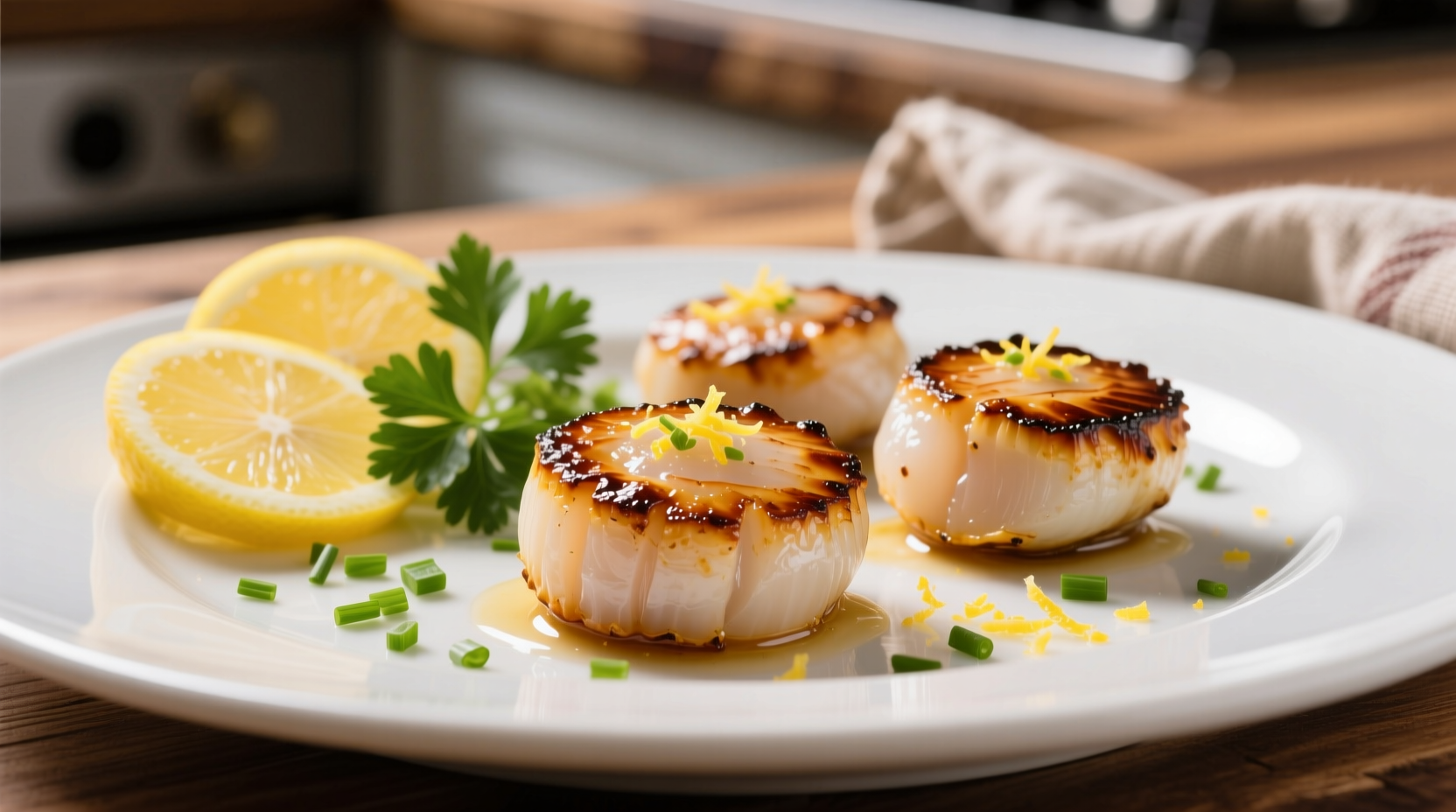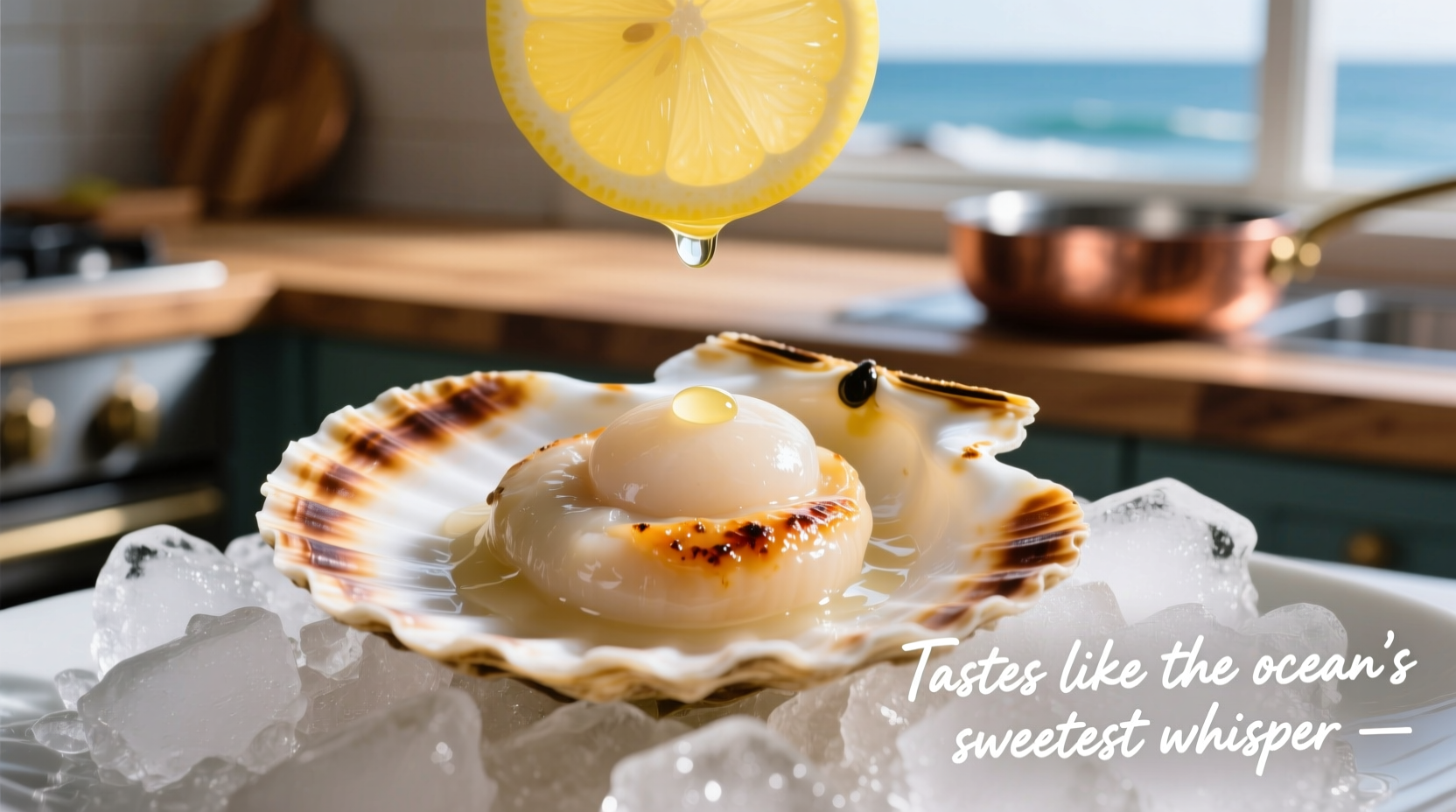If you've ever wondered what do scallops taste like, here's the direct answer: Fresh scallops offer a delicate, slightly sweet ocean flavor with subtle buttery notes and a clean finish. Their texture is tender yet firm, melting in your mouth without fishiness when properly prepared. Unlike stronger seafood, scallops provide a mild umami richness that pairs beautifully with citrus, herbs, and light sauces.
Understanding scallop flavor goes beyond a simple description. As a chef who's worked with seafood for over 15 years across professional kitchens and home cooking demonstrations, I've discovered that several factors dramatically influence how scallops taste. Let's explore what makes these shellfish special and how to experience their best qualities.
Your First Bite: The Immediate Sensory Experience
When properly cooked, scallops deliver a surprising complexity. That initial bite reveals a clean, briny sweetness reminiscent of the ocean but without overwhelming fishiness. The natural sugars in scallops caramelize beautifully when seared, creating a golden crust that enhances their inherent sweetness. Many first-time eaters are surprised by how mild scallops taste compared to fish—they're closer to crab or lobster in flavor profile than to salmon or mackerel.
Texture plays a crucial role in the overall experience. Fresh scallops should feel tender yet slightly springy. Overcooked scallops become rubbery and lose their delicate flavor, which explains why some people develop misconceptions about their taste. The sweet spot? A seared exterior with a translucent, moist center that yields gently to your teeth.
Factors That Transform Scallops' Flavor Profile
Not all scallops taste identical. Understanding these variables helps you select and prepare them for optimal flavor:
| Factor | Impact on Flavor | Best Practice |
|---|---|---|
| Species (Sea vs Bay) | Sea scallops are larger with milder flavor; bay scallops are smaller, sweeter | Use sea scallops for searing, bay for delicate preparations |
| "Dry" vs "Wet" packed | Chemically treated "wet" scallops taste soapy and won't sear properly | Always choose dry-packed scallops for best flavor and texture |
| Freshness level | Fresh scallops smell like clean ocean; ammonia odor indicates spoilage | Use within 2 days of purchase, store on ice |
| Cooking method | Searing enhances sweetness; boiling leaches flavor | High-heat searing in oil or butter yields best results |
This comparison comes from the U.S. Food and Drug Administration's Seafood Handling Guidelines, which confirms that proper handling significantly affects shellfish flavor compounds.
How Scallops Compare to Other Seafood
Many home cooks wonder do scallops taste fishy or how they compare to familiar seafood. Unlike oily fish, scallops contain minimal fat, resulting in a cleaner taste profile. Here's how they stack up against common alternatives:
- Shrimp: More pronounced ocean flavor with subtle iodine notes
- Lobster: Similar sweetness but richer, more complex umami
- Clams/Oysters: Stronger brininess and metallic notes
- Salmon: Noticeably oilier with distinct fish flavor
A 2023 sensory analysis study published in Marine Drugs confirmed that scallops contain higher concentrations of glycine (responsible for sweetness) and lower levels of trimethylamine (which causes fishiness) compared to many shellfish. This scientific evidence explains why properly handled scallops deliver that prized clean, sweet flavor.

Maximizing Scallops' Natural Flavor
The secret to enjoying scallops' best taste lies in minimal intervention. Overpowering them with heavy sauces masks their delicate flavor. Instead, try these chef-recommended approaches:
Preparation Essentials
- Always pat scallops completely dry before cooking—moisture prevents proper searing
- Season simply with sea salt and freshly cracked pepper
- Cook over high heat for 90-120 seconds per side
- Finish with lemon juice or a drizzle of high-quality olive oil
Flavor Pairings That Complement (Not Compete)
Certain ingredients enhance scallops' natural sweetness without overwhelming them:
- Citrus: Lemon or yuzu brightens without acidity overpowering
- Herbs: Chives, tarragon, or chervil add freshness
- Butter: Browned butter creates a nutty complement to sweetness
- Wine: Dry vermouth or white wine deglazes the pan perfectly
Avoid heavy cream sauces or strong spices that dominate scallops' subtle flavor. The goal is to highlight their natural ocean sweetness, not mask it.
Common Misconceptions About Scallops' Taste
Several myths persist about scallop flavor that often discourage first-time eaters:
- "Scallops taste fishy" – Properly fresh scallops have minimal fishiness; any strong odor indicates spoilage
- "All scallops taste the same" – Species, habitat, and preparation create significant flavor variations
- "Frozen scallops can't taste good" – Flash-frozen-at-sea scallops often taste fresher than "fresh" supermarket varieties
Understanding these distinctions helps set proper expectations. The National Oceanic and Atmospheric Administration's Seafood Education Program confirms that proper handling from boat to plate preserves the delicate flavor compounds that make scallops special.
Practical Tips for First-Time Scallops Eaters
If you're trying scallops for the first time, follow these guidelines to ensure the best experience:
- Start with dry-packed sea scallops from a reputable fishmonger
- Ask when they were harvested—ideally within 2-3 days
- Request they be kept on ice until purchase
- Cook simply with just salt, pepper, and high-heat searing
- Avoid overcooking—they should remain slightly translucent in center
Many seafood restaurants offer tasting portions specifically for first-time eaters. This lets you experience properly prepared scallops before committing to a full dish. Remember that cooking method dramatically affects flavor—poorly prepared scallops create negative impressions that don't reflect their true potential.
Why Scallops' Flavor Makes Them Culinary Stars
The unique combination of mild sweetness, tender texture, and versatility explains why chefs prize scallops. Unlike stronger seafood, they serve as perfect flavor carriers while maintaining their own delicate identity. Their natural sugars create beautiful caramelization during searing—a reaction that enhances rather than masks their inherent flavor.
When prepared correctly, scallops deliver what food scientists call "clean umami"—a savory richness without heaviness. This quality makes them ideal for light spring and summer dishes, though their versatility shines year-round. Understanding what scallops taste like when fresh transforms how you approach seafood cooking and dining.











 浙公网安备
33010002000092号
浙公网安备
33010002000092号 浙B2-20120091-4
浙B2-20120091-4